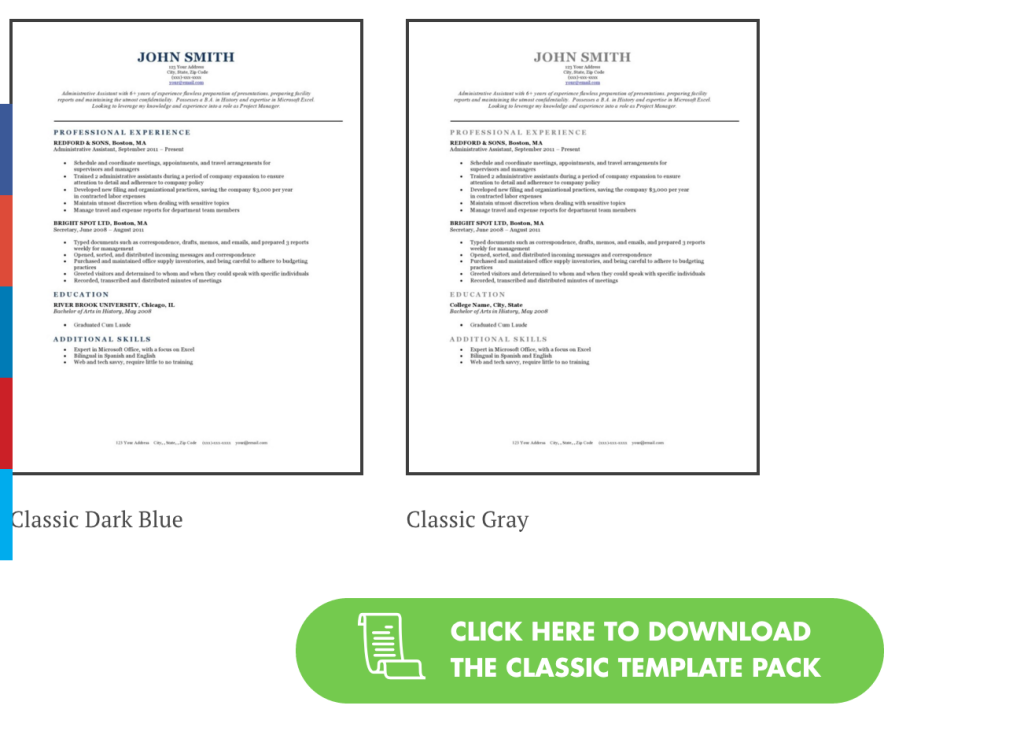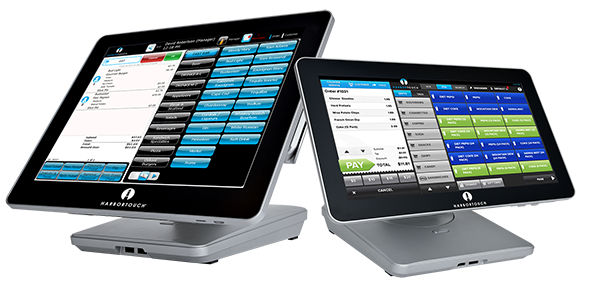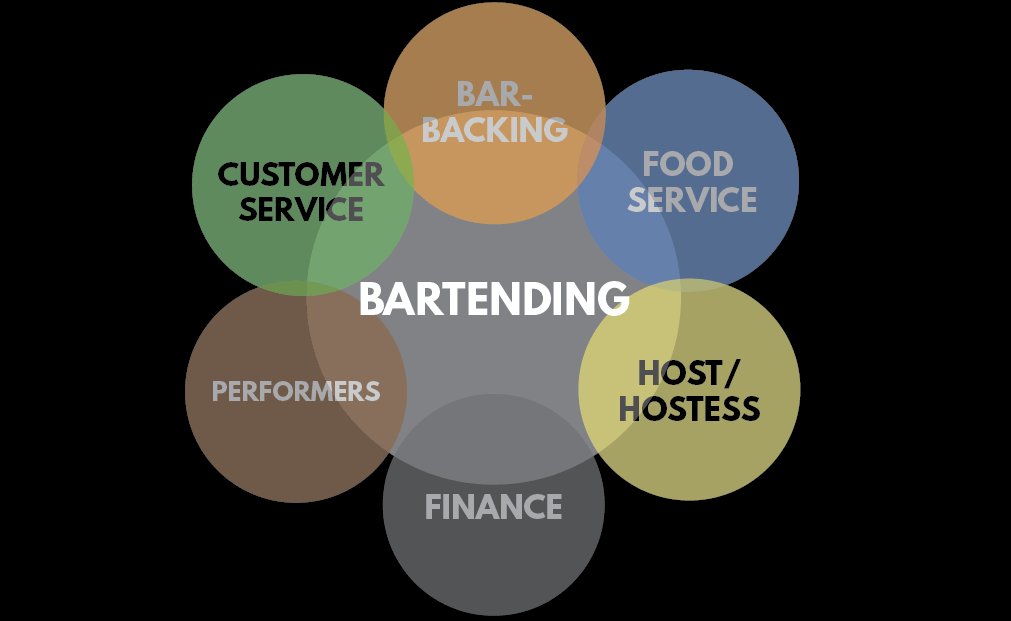The best bartending schools are the ones that also help you find a job. As you know, finding a job is highly dependent on your bartender resume. Without a proper resume, you will not even have a chance for an interview. Its like showing up to play football without the ball.
We have put together a playbook to building your bartender resume that will help you in your job search even if you didn’t go to bartending school. Remember, every graduate of American Bartenders School gets hands on resume help and taught proper interviewing techniques.
Before we start…
One quick note before you dive in is that you must be 18 years of age to sell or serve alcohol in NY state. Unfortunately, if you are any younger, there really is no reason to apply for a job because the bar manager cannot legally let you serve even if you are the greatest bartender of all time.
1. Bartender Resume Template: Choose Wisely
The template and design of a resume is very important. A clean and simple layout helps organize your information and enhances readability.
According to an article from Mashable about resumes, “Visual design is a great way to differentiate yourself from other job candidates,” says Dodd Caldwell, cofounder of Loft Resumes. “Design in general is increasingly important in the business world.”
While you may be thinking, their article is mainly speaking to the business world, these practices of good resume design should be applied to any business, bartending included.
So, first step is to choose a nice layout. Here are two super easy and painless options.
Option #1: Microsoft Word Template
When starting up Microsoft Word, simply choose New Document and pick one of the Resume Templates, like these pictured below:
Option #2: Free Templates
If you don’t have access to Microsoft Word, try heading over to ResumeGenius to download some free templates. Then click on the Download Classic Template Pack link. Then, simply open the files in Google Drive or any other word processing software like Pages for Mac or any other of these free software choices such as OpenOffice.
2. Bartender Resume Header: Lead Strong
One of the most important parts of a resume that often gets overlooked by the job-searching bartender is the header. You are the star of this show, make sure everyone knows it. This is arguably the most important part because if you do not have all of the proper information, you risk not getting called in for an interview.
According to an eye-tracking study from The Ladders, recruiters spent 80% of their time looking at six points:
- Name
- Current title and company
- Previous title and company
- Current start and end dates
- Previous start and end dates
- Education
Don’t worry about all of the other points just yet, we want to focus on the first one, the name. Jeffrey Morganthaler, bartender, blogger, author and mixologist says: “I see a lot of resumes in my position, and you’d be surprised at just how many people leave resumes with no contact information.”
So, always start with your name in a nice, bold, eye-catching font. Then be sure to include your phone number, mailing address, and valid email address. Double check that you have input everything correctly. Then when you are finished, double check again! You want to give people as many options as you can for contacting you. The more options, the more likely they are to contact you.
3. Bartender Resume Special Skills
This is your time to show off. You want to list your skills here in nice, clean bullet points. You can break them up into specific types of skills, technology (point of sale systems, and computers), language, and bartending.
Technology
This is something you should list. Although every bar has their own way of configuring a point of sale system, or P.O.S., they are all very similar. It is important that you show that you know how to operate one in general even if you have to relearn a new way of doing it once you get the job at a particular bar.
If you have taken bartender classes at a bartending school like American Bartenders School, you will have learned how to operate the Harbortouch Point of Sale system. You should definitely include this in the special skills section.
Here are some other technology skills that you may have but not even realize are valuable in the bartending industry:
- Microsoft Word
- Microsoft Excel
- Windows/Mac proficiency
- Social Media (Facebook, Twitter, Instagram)*
*Quick note about Social Media as a Bartender
Social Media has changed the way that business works in the world. If a bar has a strong social media following, it is usually taking advantage of it by sending out special notices like happy hour deals or posts pictures of guests having a good time. The same goes for a bartender with a strong social media following. If you can build a strong rapport with guests online, they may come back to visit you in person at a bar. That is something that a bar manager would like to know and would take into consideration when hiring.
The site ShakeandStrain notes that …“For a bar manager, you’re not just hiring (a bartender’s) talent but you’re hiring actual sales. In this case, a large social media following changes the calculus on both sides of that relationship.”
Language
If you know a second language in New York City, you are at a big advantage in the workplace and should definitely list it.
51% of New Yorkers speak only English at home. This leaves 49% of the population. So what does everyone else speak? Here is a little breakdown from WNYC on the many languages of NYC.
Bartending Skills and Certifications
Here, you want to focus on a few very important things. These are also part of our 15 Step Guide to Getting a Bartending Job.
(Remember them easily with this C.U.P.)
– Control the bar – Your ability to control the bar and expedite in an orderly fashion will keep customers (and bar managers) happy.
– Upselling – Upselling according to Wikipedia is “a sales technique whereby a seller induces the customer to purchase more expensive items, upgrades, or other add-ons in an attempt to make a more profitable sale.”
So in bartending, this is the art of getting customers to buy something more than they ordered. This is something that you will learn in any bartending school, especially American Bartenders School.
– Pour Cost – Being aware of the pour cost shows your employer that you will NOT over pour drinks. That means less money going down the drain (literally.)
If you have any special certifications, you will want to list them here. Now remember, there is NO such requirement by law for a bartender to have a bartending license here in New York City.
There are, however, some other things that particular bars ask of their bartenders to help protect themselves from legal trouble. Some bar owners purchase Liquor Liability Insurance to help cover them, but insurance companies often tell bar owners to also get their workers trained in an awareness program of some sort.
Here are some things you may want to list if you have them:
4. Bartender Resume Work Experience: Be A Show Off
This is a very important part of your resume, and it is where you want to be a show off. It’s OK to showboat a bit and let them be wowed by your work so far.
Don’t shy away here if you haven’t had any work experience in a bar, however, because we know that isn’t a deal breaker for getting a job as a bartender. Of course, you will always want to go to bartending school. You can sign up here if you are interested.
We have broken this up into two easy sections.
You have work experience bartending in a Restaurant or Bar (if not you can skip ahead)
If you have experience, you want to clearly state your job title, the name of the establishment, the city/state, and the dates that you worked:
Bartender, The Wayland, New York City May 2008 – July 2009
- (list responsibilities here)
Bartender, Summit Bar, New York City August 2009 – August 2011
- (list responsibilities here)
Then, beneath the job, you want to provide a description of your responsibilities, as well as the skills that you utilized and developed. Sometimes it is nice to show off as stated in Break Into Bartending, but remember that the bar manager is going to ask you about anything that is stated on your resume, so don’t lie. If you created a drink or post to their social media nightly, you should mention it.
You want to give a sense of the type of job in a few simple bullet points. Keep your list to three or four at the most.
- Supervised and scheduled bartenders and servers
- Responsible for inventory, stocking, ordering and sanitation of bar
- Interviewed, hired and trained all new bartenders and servers
You don’t have work experience bartending in a Restaurant or Bar:
The key to a good resume is highlighting the skills that a bar manager wants in a bartender. If you don’t have experience bartending yet, here are some really important skills that you will learn at a bartending school.
When displaying your information, you want it to read the same way. Position, Name of Establishment, Location DATES WORKED
Server, Houlihan’s, Newark, NJ May 2008 – July 2009
- (list responsibilities here)
Either way, looking at your work history, you should highlight these types of jobs:
- Bar-Backing – This is an important one, because it clearly shows that you have worked at a bar and understand how the job works.
- Restaurant Host/Hostess – This displays that you can handle the flow of customers even on a busy night and that you have been part of the industry. You might have also used a P.O.S. system.
- Food Service – (McDonalds, Starbucks, other fast food) – Much like a restaurant server, you might have experience using a P.O.S. system, you have experience serving customers and dealing with them.
- Customer Service Jobs – Any consumer facing job where you have to talk to a customer and show that you will keep your cool when the going gets tough is very important as a bartender.
- Finance – Bartenders deal with money constantly. If you have the skills to help out with the books behind the scenes, that may be one extra skill that sets you apart from the rest of the bartending candidates.
- Performers – It is not uncommon for actors to work as bartenders in their downtime. Most actors are great with interacting with people and really ‘put on a show’ behind the bar. This helps make friends, wow customers, and keep everyone coming back for more.
You want to give a sense of the type of job in a few simple bullet points. Keep your list to three or four at the most.
5. Bartender Resume Education Section
When listing your education, you should lead with the most relevant portion, like bartending school. If you haven’t been to bartending school, simply start by listing your highest level of education.
You should list the name, city, the year date you graduated, and feel free to list any achievements such as a high GPA or any awards which may show off your academic prowess. You don’t have to be a genius to be a bartender, but you have to show that you care about your education enough to finish it. If you haven’t finished school yet, consider going to bartending school to help bolster your resume.
In terms of format for this section, nothing fancy here. Just follow the same guidelines:
NAME OF THE SCHOOL, (CITY,STATE OPTIONAL), DATE GRADUATED
6. Bartender Resume References
People are on the fence on this one for whether or not to include references. In fact, Quint Careers thinks that you should never list them on your resume, but that you should have them on a separate page. Sometimes a bar manager is just too busy to check your references even if you provide them. Others may ask you for them if you don’t provide them.
The fact of the matter is, as you begin your professional career, you are going to want to start gaining a few contacts that can vouch for your character. They don’t all have to be your boss or supervisors. Think about teachers or coaches. No matter what, it is always important to REQUEST THEIR PERMISSION and KEEP THEM INFORMED.
Requesting Permission
In either an email or a phone call, keep it short and to the point. Ask your reference if it is OK to list them as a reference. Then ask if their preferred mode of contact – email or phone.
Keep them Informed
If you are applying somewhere and you expect your reference to be contacted, give them a heads up. They should be prepared to receive a call and to speak about you. If need be, give them a quick background on your previous work together and some details on the job for which you are applying.
Next Steps…
The next steps are going to be actually contacting places to work. The full list can be found here in our 15 Extremely Simple Steps to becoming a bartender. This outlines the legwork (figuratively and literally) that you will have to do to get your resume to the right hands.
Or sign up for American Bartenders School and our job placement team will help you set up your resume personally and prepare for your interview like a champ.











